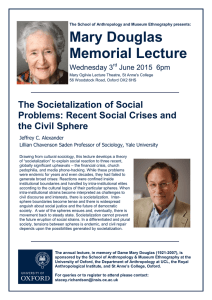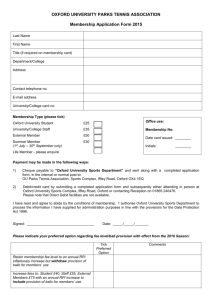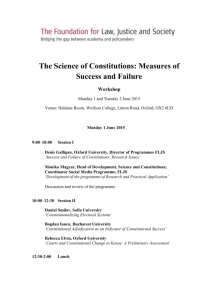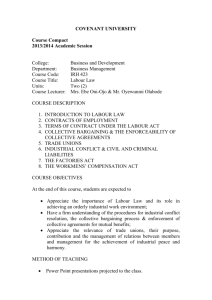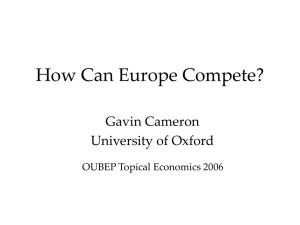Advanced Economics
advertisement
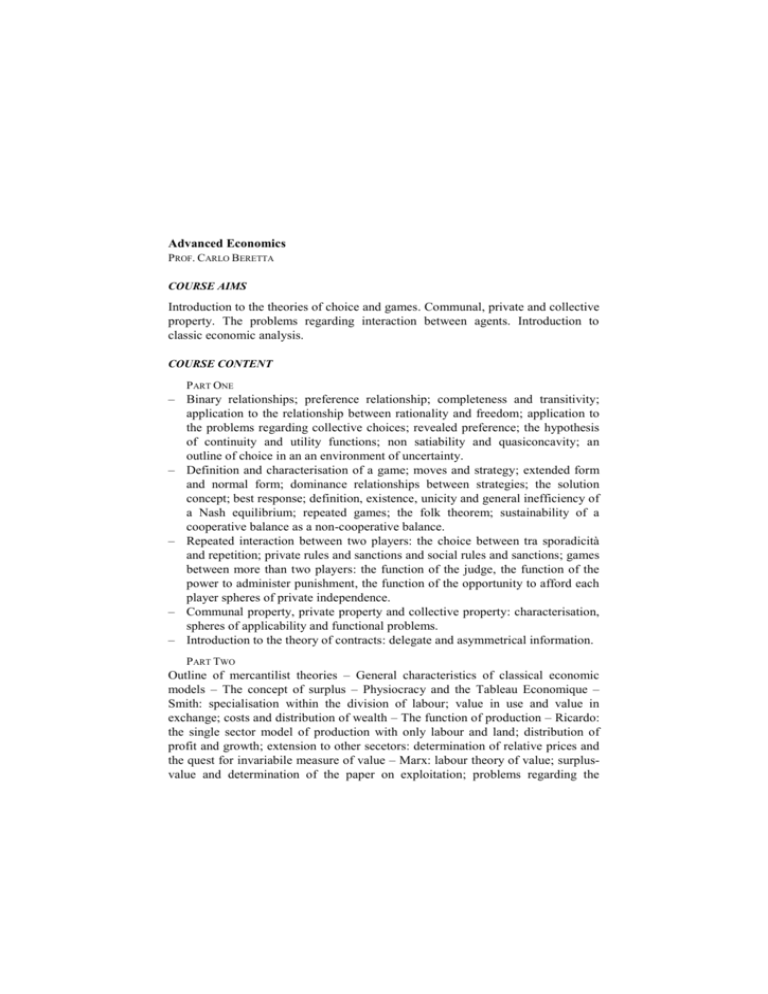
Advanced Economics PROF. CARLO BERETTA COURSE AIMS Introduction to the theories of choice and games. Communal, private and collective property. The problems regarding interaction between agents. Introduction to classic economic analysis. COURSE CONTENT PART ONE – Binary relationships; preference relationship; completeness and transitivity; application to the relationship between rationality and freedom; application to the problems regarding collective choices; revealed preference; the hypothesis of continuity and utility functions; non satiability and quasiconcavity; an outline of choice in an an environment of uncertainty. – Definition and characterisation of a game; moves and strategy; extended form and normal form; dominance relationships between strategies; the solution concept; best response; definition, existence, unicity and general inefficiency of a Nash equilibrium; repeated games; the folk theorem; sustainability of a cooperative balance as a non-cooperative balance. – Repeated interaction between two players: the choice between tra sporadicità and repetition; private rules and sanctions and social rules and sanctions; games between more than two players: the function of the judge, the function of the power to administer punishment, the function of the opportunity to afford each player spheres of private independence. – Communal property, private property and collective property: characterisation, spheres of applicability and functional problems. – Introduction to the theory of contracts: delegate and asymmetrical information. PART TWO Outline of mercantilist theories – General characteristics of classical economic models – The concept of surplus – Physiocracy and the Tableau Economique – Smith: specialisation within the division of labour; value in use and value in exchange; costs and distribution of wealth – The function of production – Ricardo: the single sector model of production with only labour and land; distribution of profit and growth; extension to other secetors: determination of relative prices and the quest for invariabile measure of value – Marx: labour theory of value; surplusvalue and determination of the paper on exploitation; problems regarding the transformation of value into production prices; outline of the theory regarding the fall of the capitalist system – Contrast between classical and neo-classical models. READING LIST For Part One I. GILBOA, Rational choice, MIT Press, Boston, 2010. I. GILBOA, Theory of decision under uncertainty, Cambridge University Press, Cambridge, 2009. W. GAERTNER, A primer in social choice theory, Oxford University Press, Oxford, 2009. M.J. OSBORNE, An introduction to game theory, Oxford University Press, Oxford, 2004. For Part Two The reading list for this section of the course will be indicated during lectures. TEACHING METHOD Lectures. ASSESSMENT METHOD Written examination (optional); oral examination. NOTES Students are advised to take Economics (introductory course) before taking this course. Further information can be found on the lecturer’s webpage http://www2.unicatt.it/unicattolica/docenti/index.html or on the Faculty notice board. at


